Day 01 | Monday, September 15, 2025
VISION TALK
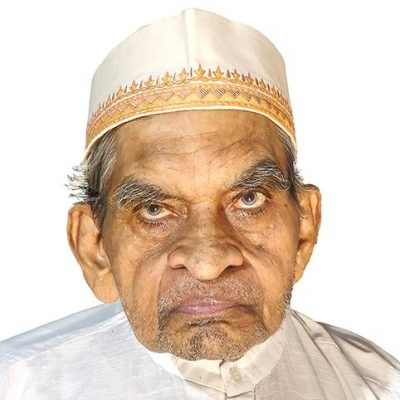
Revered Prof. Prem Saran Satsangi
Talk Timings: TBA
Session Chair: TBA
Revered Prof. Prem Saran Satsangi, the father of systems movement in India, having graduated with a B.Sc. in Electrical Engineering from the Banaras Hindu University (presently Indian Institute of Technology, Banaras), pursued M.S from the Department of Electrical Engineering, the Michigan State University, USA. Prof. Satsangi earned his Ph.D. in the field of Socio-economic system from the University of Waterloo, Canada. Rev. Prof. Satsangi took voluntary retirement from the Indian Institute of Technology, Delhi to serve as the honorary Director (CEO), Dayalbagh Educational Institute (a deemed university).
Prof. Satsangi has generalized the application of physical systems theory in his systemic research from “real” physical systems to a variety of “conceptual” socioeconomic-environmental systems. He has succeeded in extending physical systems theory as a rudimentary modelling framework for complete “creational” system, including not only physical processes, but also “esoteric” mental and spiritual processes.
On May 18, 2003 a gathering in Dayalbagh of about 25,000 representatives of the approximately half a million members (followers) of Radhasoami Faith (“Radhasoami Satsang” Dayalbagh) from all over India and abroad, proclaimed Prof.Prem Saran Satsangi unanimously as their leader for lifetime to lead the Radhasoami Satsang Community.
Prof. Prem Saran Satsangi, the eighth spiritual leader of the Radhasoami Faith, Dayalbagh, is the Chairman of the Advisory Committee on Education (ACE), Dayalbagh Educational Institute.
TBA.
KEYNOTE TALK
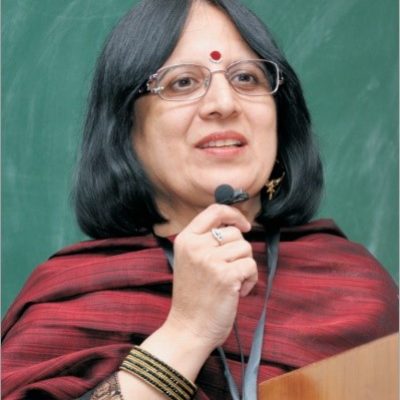
Prof. Pami Dua
Talk Timings: TBA
Session Chair: TBA
Dr. Pami Dua is Senior Professor of Economics and Former Director of the Delhi School of Economics. She has served the University of Delhi in various roles including Dean of Academic Activities and Projects, Chairperson of the Research Council, Dean Research of Humanities and Social Sciences, and Coordinator of the Internal Quality Assurance Cell.
Currently, she is a part-time member of the Economic Advisory Council to the Prime Minister (EAC-PM), Distinguished Fellow at the Research and Information System for Developing Countries (RIS), and serves on the Governing Councils of CAFRAL (Mumbai), Dayalbagh Educational Institute (Agra), and the Research and Innovation Council at Vidyashilp University (Bengaluru). She is also a Senior Research Fellow at the Economic Cycle Research Institute (ECRI), New York.
Dr. Dua was a member of the first Monetary Policy Committee of the Reserve Bank of India (2016–2020) and Co-Chair of the Task Force on Macroeconomics, Trade and Livelihoods under Think20 (T20)/G20 India 2023. She has also been Distinguished Fellow at IGIDR (Mumbai), Governing Council member of MIDS (Chennai), President of the Indian Econometric Society (2015–16), and India Coordinator for the UN Global Forecasting Model - Project LINK. She served nearly two decades as Editor of the Indian Economic Review.
Her research spans time series econometrics, forecasting, macroeconometrics, monetary policy, business cycles, and sustainable development. She has taught for four decades in India and the U.S., including at the University of Connecticut, Wayne State University, and affiliations with Yale and Columbia Universities.Dr. Dua holds a B.A. (Hons.) in Economics from Lady Shri Ram College, and a Master’s (with distinction) and Ph.D. from the London School of Economics. She has received several honors including the Nishtha Dhriti Satyam Samman from the University of Delhi, the Distinguished Alumni Awards from LSR and DEI, and the National Systems Gold Medal by the Systems Society of India.
ABSTRACT
In the contemporary context of international relations and governance, power is commonly
defined as the capacity of a state or entity to influence the behaviour of other actors in order
to achieve its strategic objectives. Power could be hard power, soft power or an
amalgamation of the two i.e. smart power. Hard power refers to the military and economic
capabilities of a state or institution used to influence others through coercion or
inducement—such as the use of military force, financial assistance, sanctions, or regulatory
authority. Soft power, on the other hand, is the ability to shape preferences, perceptions, and
behaviour through appeal and attraction. It is rooted in cultural influence, values, ideology,
diplomacy, and the legitimacy of institutions. Both concepts are crucial, but alone, they are
limited: hard power without values can lead to oppression, while soft power without capacity
can be ineffective. This leads to the evolution of smart power, which is not merely the
arithmetic sum of hard and soft power, but a strategic, context-sensitive synergy of both.
While the concept of smart power—the strategic combination of hard power and soft
power—has gained prominence in foreign policy discourses, its application remains
predominantly materialist and instrumental. This paper seeks to introduce a paradigm shift by
arguing that spiritual consciousness, conscientiousness, and community engagement are
critical, yet underexplored, dimensions of smart power which inspire long-term
transformation. We propose that spirituality is not merely a private or cultural phenomenon,
but a strategic and structural asset—one that reinforces both soft and hard power when
mobilized inclusively and ethically.
This paper investigates the key determinants of smart power, particularly how it relates to
economic growth, sustainable development, and community engagement. We argue that in an
era of rising global interdependence, nations that can effectively synthesize institutional
capability (hard power) with cultural resonance, ethical values, spiritual consciousness and
conscientiousness and community engagement (soft power)—thereby exercising smart
power—are better positioned to achieve long-term prosperity, resilience, and global
legitimacy. To empirically examine this relationship, we conduct a comparative analysis of
soft power in developed and emerging economies on the basis of a Global Soft Power Index.
This index offers a multidimensional view of soft power across countries, incorporating
metrics such as governance, international relations, business and trade, culture and heritage,
media presence, and education—allowing us to assess how the interplay of soft and hard
power correlates with national development and influence.
Countries that strategically align hard capabilities with values, inclusion, and community-
based models of development—in other words, that successfully operationalize smart
power—are more likely to achieve sustained and broad-based growth. This highlights how values-driven engagement is not just desirable—it is economically and strategically
advantageous.
We highlight India as a prime example of smart power, blending rising hard
power—economic and military strength—with deep-rooted soft power, including cultural
heritage and spiritual traditions. As a practical, grounded case, we turn to the Dayalbagh
model in Agra, Uttar Pradesh, India, a community that demonstrates how consciousness,
conscientiousness, and community engagement can drive transformative influence. Guided
by the Sigma Six Q-V-A model- a socio-economic-technological-spiritual-climatic model
comprising agriculture & dairy, education & healthcare, air quality, water quality, innovation,
and human values—Dayalbagh integrates institutional infrastructure and technological
discipline (hard power) with voluntary participation, ethics, and cultural appeal (soft power).
These elements function as a cohesive system, creating a form of grassroots smart power
rooted in inner transformation and collective action. Dayalbagh exemplifies how sustainable
development and influence can emerge through inclusion, moral leadership, and spiritual
consciousness.
We conclude by emphasizing the need to rethink the architecture of power in the 21st century.
In an age of polycrisis—ranging from climate change and inequality to polarization and
institutional distrust—effective leadership and influence will not come solely from financial
muscle or media visibility. Rather, it will come from the ability to inspire, include, and
sustain. Spiritual consciousness, conscientiousness, and meaningful community engagement
are essential components of such leadership. When fused with institutional strength and
strategic thinking, they form the foundation of true smart power—one that is not only capable
of shaping global outcomes, but also of ensuring that those outcomes are just, inclusive, and
sustainable.
KEYNOTE TALK
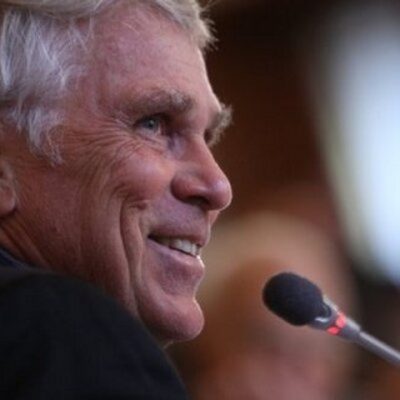
Prof. Mark Juergensmeyer
Talk Timings: TBA
Session Chair: TBA
Mark Juergensmeyer is Distinguished Professor of Sociology and Global Studies at the University of California, Santa Barbara, where he was founding director of the Orfalea Center for Global and International Studies. He has taught at the Berkeley, Santa Cruz and Santa Barbara campuses of the University of California and served as founding dean of Asian and Pacific Studies at the University of Hawaii. He is the recipient of Guggenheim, American Council of Learned Societies, and other fellowships, and has two honorary doctorates. He has served as President of the American Academy of Religion, and is author or editor of 30 books, including The Oxford Handbook of Global Religion, The Encyclopedia of Global Religion, God in the Tumult of the Global Square, Radhasoami Reality, Gandhi’s Way, and the award-winning Terror in the Mind of God. He received his PhD in political science from the University of California at Berkeley and a Master of Divinity from Union Theological Seminary, New York.
TBA
KEYNOTE TALK
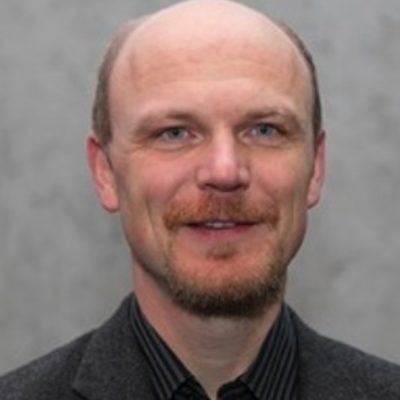
Prof. Andreas Müller
Talk Timings: TBA
Session Chair: TBA
Andreas Müller (*1966 in Bochum) studied Protestant Theology in Bethel/Bielefeld, Bern (CH), Heidelberg and Thessaloniki (GR). Doctorate in 1998 in Heidelberg. Habilitation 2003 in Munich with a thesis on spiritual obedience in Johannes Sinaites, called John of the Ladder. 2003-2009 work as pastor of the Protestant Church of Westphalia with a church-historical research project and parallel professorships in Jena, Kiel and Berlin. Since 2009 professor for church and religious history of the 1st millennium at Kiel University. Since 2011 Vice-Chairman and Chairman of the Church History Section of the Scientific Society for Theology (Wissenschaftliche Gesellschaft für Theologie). Since 2012 Chairman of the Society of Friends of Christian Mysticism.
TBA
INVITED TALK
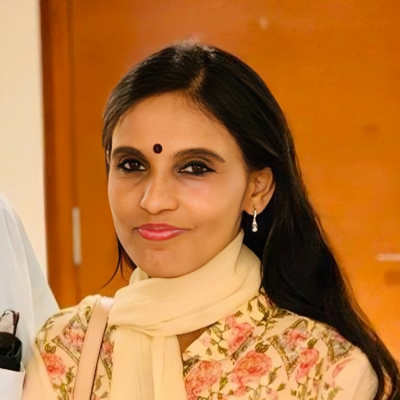
Dr. Dayal Pyari Srivastava
Talk Timings: TBA
Session Chair: TBA
Dr. Dayal Pyari Srivastava is Assistant Professor at the Department of Physics and Computer Science, DEI. She obtained her Bachelor’s degree in Physics and Master’s degree in Electronics from Dayalbagh Educational Institute in 1985 and 1988 respectively. Subsequently, she obtained her Ph.D. on the topic “Graph Theoretic Quantum Field / System Modelling for Quantum Information / Computation Circuits and Algorithms” as a joint research scholar between DEI and IIT Delhi. She has been actively involved in physics education for over 20 years and has vast experience of science education.
She has published several papers in refereed international journals and co-authored a book entitled “Quantum Information Systems” published by McGraw Hill Education, particularly the R.K. Varshney Award of Systems Society of India for exceptional contributions to systems science, application, and technology. Her research interests include graph theoretic modelling of quantum systems and consciousness studies.TBA
INVITED TALK
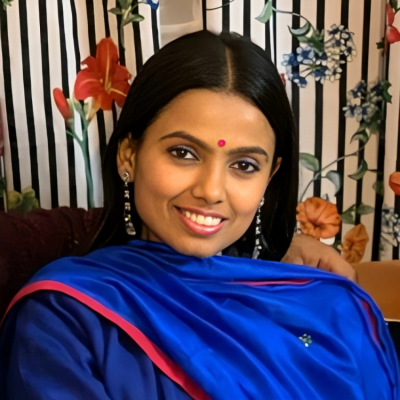
Dr. Dayal Pyari Srivastava
Talk Timings: TBA
Session Chair: TBA
Dr. Bani Dayal Dhir is Assistant Professor at the Department of English Studies, Dayalbagh Educational Institute (Deemed to be University) Agra, India. Recipient of the prestigious Director’s medal in BA Hons, MA and M.Phil. English, her primary research interests include Literature , Theory and Consciousness studies.
Her research is characterized by its interdisciplinary nature, with notable contributions including the M.Phil. dissertation, “Graph Theoretic Field Modelling for Multi-Dimensional Literary Systems,” and her Ph.D. thesis, “A Study of Emergentism and High-End Complexity in Complex Literary Systems.” In recognition of her impactful work in Systems Theory and literature, the Systems Society of India (SSI) awarded her the National Young Systems Scientist award in 2009 and the prestigious Raj Kumar Varshney award in 2017.
She has presented her research at numerous national and international conferences, earning several best paper awards. As Joint Coordinator of the Centre for Consciousness Studies at DEI from 2011 to 2017, she played a pivotal role in organizing the ‘East-West Forum,’ a platform that bridges Eastern and Western perspectives on consciousness, at the annual international conference “The Science of Consciousness,” hosted by the University of Arizona’s Centre for Consciousness Studies.
In addition to her leadership in the consciousness studies arena, she has published extensively in both academic journals and creative outlets, including research papers, creative non-fiction, and poetry. Presently she is the coordinator of (iNFORMATIONcOMMUNICATION- nEUROcOGNITIVE-) Technologies Assisted Language Lab (i-c-n-c- TALL) at DEI.
From dramaturgy to devotion : An interpretation of Huzur Sahabji Maharaj's Play Sharanashram Ka Sapoot.
INVITED TALK
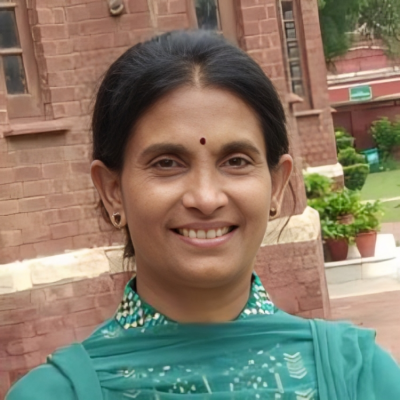
Dr. Dayal Pyari Srivastava
Talk Timings: TBA
Session Chair: TBA
Mrs. Prem Pyari Dayal received the B.A. degree from University of Delhi in 1980, the M.A degree in Psychology and the B.Ed. degree from the Dayalbagh Educational Institute, Agra, in 1982 and 1984, respectively. Since 2009, she has been an honorary Lecturer in DEI Prem Vidyalaya Girls Intermediate College, Dayalbagh, Agra, India. Her research interest is in the science of consciousness.
TBA.
KEYNOTE TALK
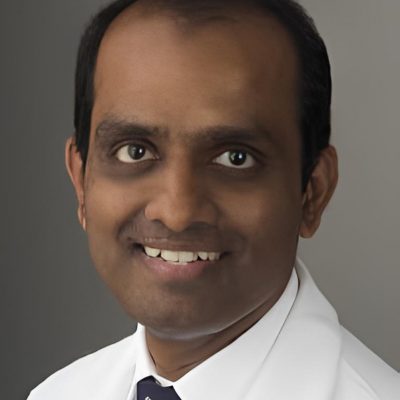
Prof. Bala Subramaniam
Talk Timings: TBA
Session Chair: TBA
Dr. Subramaniam grew up in Pondicherry, went to JIPMER medical School. He did his postgraduation in Anesthesiology and Critical Care at the All India Institute in New Delhi, India. He then went to Harvard to do his cardiac anesthesia training at Harvard Medical School and Masters in Public Health at the Harvard School of Public Health. He is a Professor of Anesthesiology at Harvard Medical School, Ellison C. "Jeep" Pierce Endowed Chair of Anesthesia and the inaugural and founding director of Sadhguru Center for a Conscious Planet at Beth Israel Deaconess Medical Center, Boston, Massachusetts.
Title: Anxiety, Anxiety and Inflammation: Can this be mitigated by meditation?
Abstract
Sadhguru Center for a Conscious Planet was established to bridge science and spirituality in November 2020. The purpose of this center is to enhance our understanding of consciousness, cognition, and compassion through research, education, and outreach. Since its inception, the center has had educational content with more than 10 million YouTube views, a consciousness conference that was accredited by the Harvard Medical School, 20 original research publications in the field of science and spirituality.
Pursuing these thoughts today I will talk about the common thread between ageing, anxiety, and stress- the hidden fire of inflammation and possibly neuroinflammation.
Have you ever had brain fog so thick, you forgot names you’ve known for years? I have.
After a family vacation, I forgot our passports at the airport. But later, I started forgetting names of colleagues — not once, but more frequently. When I asked my neurology colleague about it, he said, 'It’s age.' But I wondered — can I do something about. The Root Causes we now know that poor sleep, a lack of joy, and an inflammatory diet all contribute to a hidden process-inflammation and specifically neuroinflammation — and it affects everything from anxiety to aging..
Pandemic as Stress Test – Perceived Stress & Wellbeing: The COVID-19 pandemic was the perfect storm. We studied over 5,000 people practicing a meditation method called Shambhavi, and compared them to 2,500 The results? Markedly lower stress levels, even before vaccines were available. And more importantly, their well-being scores were significantly higher. They didn’t just survive — they thrived..
Genomic Immune Response: What’s happening at the molecular level? We collaborated with the University of Florida. We found that meditators activated STAT genes — the same ones that fight infection. In severe COVID cases, those genes were turned down.
In meditators? They were switched on. We went further — looking at their blood proteins.
They showed elevated defense proteins and reduced baseline inflammation — exactly what you want in someone. And in stool samples taken three months after a meditation retreat, we found sustained increases in good gut The gut, often called the second brain, affects cognition, emotion, and inflammation.
Rewiring the Brain – fMRI & Graph Theory: Then we looked at their brains. fMRI scans showed increased connectivity between brain networks responsible for mindfulness and control.
After just 15 minutes of meditation, their brains became more integrated — a pattern similar to what we see after. Brain Age Index – 6 Years Younger: We also analyzed sleep EEGs using an algorithm trained on 25,000 patients. The result? These meditators had brains that appeared 6 years younger — and 15–20 years younger than those. Increased Anandamide – Inner Pleasantness was seen in a meditation retreat. But the brain doesn’t just get sharper — it gets happier. We measured a 70% increase in Anandamide, a bliss molecule — an endocannabinoid that fosters calm, clarity.
A brain that is thicker, with enhanced connections and restorative meditation induced long range connections, six years younger brain wrapped in pleasantness is tuned to be a fine tool to enhance our perceptions and thereby deepen the experience of life. Such a tool can enhance the impact that you can create too. That is all we have in our lives says my master.
KEYNOTE TALK

Prof. Nancy Cooke
Tempe, USA
Talk Timings: TBA
Session Chair: TBA
Nancy J. Cooke is a professor in Human Systems Engineering at the Polytechnic School, one of the Ira A. Fulton Schools of Engineering at Arizona State University. She is also Senior Scientific Advisor for the Global Security Initiative’s Center for Human, AI, and Robot Teaming. She received her PhD in Cognitive Psychology from New Mexico State University in 1987. Dr. Cooke is a Past President of the Human Factors and Ergonomics Society and the past chair of the Board on Human Systems Integration at the National Academies of Science, Engineering, and Medicine. Professor Cooke’s research interests include the study of individual and team cognition and its application to remotely piloted aircraft systems, human-robot teaming, and emergency response systems. She specializes in the development, application, and evaluation of methodologies to elicit and assess individual and team cognition. Her work is funded by DoD and has been widely published.
TBA
KEYNOTE TALK
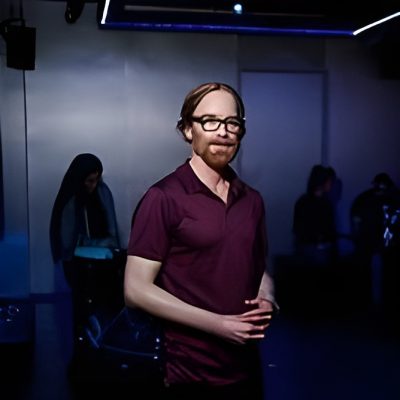
Prof. Jamie Gorman
Talk Timings: TBA
Session Chair: TBA
Dr. Jamie Gorman is a Professor of Human Systems Engineering and Director of the Center for Human, Artificial Intelligence, and Robot Teaming (CHART) at Arizona State University. Dr. Gorman develops team measurement systems that promote human survival, safety, and satisfaction through human-machine teaming. His research investigates human-machine teaming in medical, military, sports, space, and K-12 educational environments. Dr. Gorman’s research is funded by US Department of Defense, the National Science Foundation, and industry partners. His team dynamics measurement systems are currently being deployed in military and educational environments.
Using Team Cognition to Measure Adaptation Human-Technology Systems
Engineers and social scientists develop technology (AI, robotics) and theories of the human mind that are closed off from each other, in isolated laboratories, testbeds, and
professional societies. The challenge of engaging engineers in a serious discussion of
human experience and, at the same time, social scientists with the technological
capabilities of AI and robotics remains unmet. One way to address this challenge is to
open these systems up to each other, beyond their existing axioms, assumptions, and
theories. We use the concept of team cognition to develop unified models of adaptation
and creation in human-technology systems. This talk describes a novel approach for
measuring cognition in human-technology systems and real-time metrics of adaptation,
resilience, and influence in educational and military training environments.
Day 02 | Tuesday, September 16, 2025
KEYNOTE TALK

Prof. Wolfgang Duschl
Talk Timings: TBA
Session Chair: TBA
Wolfgang Duschl is a full Professor for Astrophysics at the Christiana Albertina University (CAU) at Kiel, Germany (since 2006). He is also the Chairman of the Academic Senate of CAU, and the Chairman-elect of the Board of Directors of the international professional journal “Astronomy & Astrophysics”. He received his Doctoral degree from the Ludwig-Maximilians-Universität in Munich (Germany) with a thesis prepared at the Max Planck Institute for Astrophysics (Garching, Germany). Other stations in his career were the Universities of Cambridge (UK), Heidelberg (Germany), and Arizona (Tucson, AZ, USA), and the Max Planck Institute for Radio Astronomy in Bonn (Germany).
His main research interests are the evolution of super-massive black holes and the atmospheres of exoplanets.TBA
PLENARY TALK
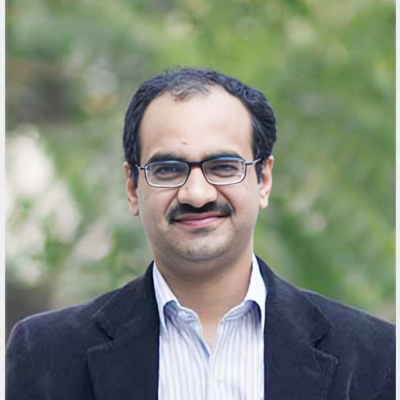
Prof. Rohan Paul
Talk Timings: TBA
Session Chair: TBA
Rohan Paul is an Associate Professor at the Department of Computer Science and Engineering, Indian Institute of Technology Delhi, India with Joint Appointment with the Yardi School of Artificial Intelligence. He obtained B. Tech. and M.Tech. degrees at the Indian Institute of Technology (IIT) Delhi, D.Phil. degree at Oxford University and was Postdoctoral Associate at the Computer Science and AI Laboratory (CSAIL), Massachusetts Institute of Technology, USA. His research lies at the intersection of robotics and AI with emphasis on robot decision making, semantic mapping, human interaction, and active learning with experimental demonstrations on autonomous manipulators, ground robots and mobile manipulators. His research has appeared in ICRA, RSS, IJRR, AAAI, IJCAI, IROS, receiving Best Paper Awards/Nominations at RSS 2016, IROS 2013 and ICRA 2010. He is a recipient of two national awards and named one of 35 global innovators under the age of 35 by MIT Review. Currently, he leads research in intelligent robotics for human assistance supported through research grants from DRDO DIA-COE, ICMR, MoE and DST in India.
Recent years have witnessed rapid advances in the
“science of intelligence” resulting in many artificial intelligence applications. We are entering an era where artificial intelligence is merging with real world systems also called “embodied or physical AI” that we can interact with. This talk will discuss the conceptual underpinning of embodied AI and discuss applications ranging from supporting persons with disability, care for the infirm or those working in hazardous conditions. In particular, I will emphasize the need to think as “human+AI” systems where both humans and AI work together to achieve a task. This talk will raise questions about how we see intelligent systems can aid in the creating of an inclusive and equitable future; themes that are the focus of the National Systems Conference in Dayalbagh.PLENARY TALK
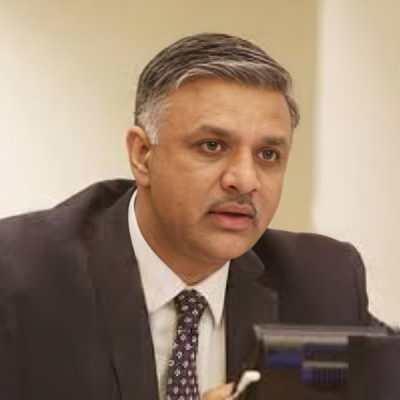
Prof. Sachin Chaturvedi
Talk Timings: TBA
Session Chair: TBA
Professor Sachin Chaturvedi is currently Vice Chancellor of Nalanda University with additional charge of the post of Director General at the Research and Information System for Developing Countries (RIS), a New Delhi-based Think- Tank. He works on issues related to development economics, involving development finance, SDGs and South-South Cooperation, apart from trade, investment and innovation linkages with special focus on WTO. Professor Chaturvedi has persistently endeavoured to build up institutions and launching of networks, both at national and international levels. He is credited with the launch of Network of Southern Think Tanks (NeST) and Forum for Indian Development Cooperation (FIDC). He has also created “Delhi Process”, a major forum for exchange of ideas on South-South and triangular Cooperation. Professor Sachin Chaturvedi has been part of several important initiatives of the Government of India and takes keen interest in transforming economic policymaking towards integrated and evidence-based approaches. He is one of the foremost commentators on India’s external sector economic engagements and partnerships. He is considered as most dynamic and affable by his peers and has mentored several bright scholars and researchers in the profession. He has authored/edited more than 22 books, apart from contributing several chapters in the edited volumes and also publishing several research articles in prestigious journals. He is on the Editorial Board of several journals including the South Asian Economic Journal, IDS Bulletin, Sussex, UK among others. His book “The Logic of Sharing – Indian Approach to South-South Cooperation” has been acclaimed internationally as one of the best volumes on international development cooperation. Professor Sachin Chaturvedi was also the ‘Global Justice Fellow’ at the MacMillan Centre for International Affairs at Yale University (2009-2010) and has served as a Visiting Professor at the Jawaharlal Nehru University (JNU) and was a Developing Country Fellow at the University of Amsterdam (1996), Visiting Fellow at the Institute of Advanced Studies, Shimla (2003), and Visiting Scholar at the German Development Institute (2007). Currently, Prof. Chaturvedi is also Independent Director on the Board of Reserve Bank of India.
"Crisis of Global Order and resilience through value system: New opportunities and options with educational institutions."
STUDENT FORUM
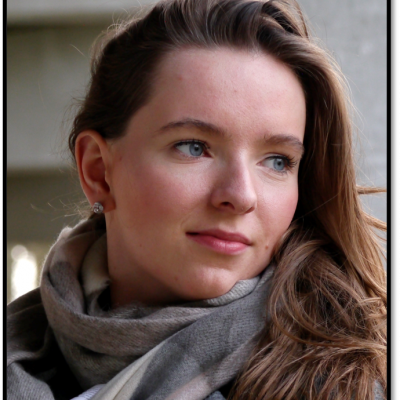
Melina Seidel
Talk Timings: TBA
Session Chair: TBA
TBA.
TBA.
YOUNG RESEARCHER
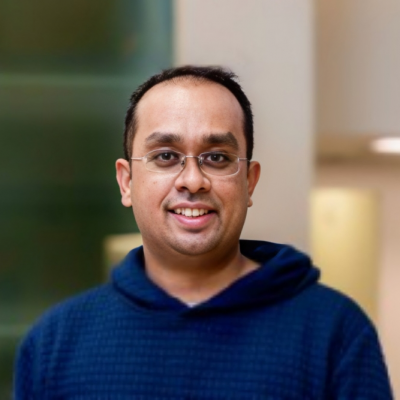
Dr. Apurva Ratan Murty
Talk Timings: TBA
Session Chair: TBA
Apurva Ratan Murty is an Assistant Professor of Cognition and Brain Science in the School of Psychology at Georgia Tech, and the Director of the Murty Lab. He obtained his PhD from Indian Institute of Science (IISc) Bangalore and was a postdoctoral researcher in the Kanwisher and DiCarlo labs at MIT before moving to Georgia Tech. Research in the Murty Lab aims to uncover the neural codes and algorithms that enable us to see.
The central theme of the lab’s work is to integrate biological vision with artificial models of vision. The lab combines the benefits of closed-loop experimental testing (using 3T/7T human functional-MRI) with cutting-edge computational methods (like deep neural networks, generative algorithms, and AI interpretability) toward a new computationally precise understanding of human vision. This research also guides the development of neurally mechanistic biologically constrained models aimed to uncover a better understanding of the neurobiological changes that underlie perceptual abnormalities such as agnosias.
In 2021 he received two awards –the NIH K99/R00 ‘Pathway to Independence’ from National Eye Institute, and the Young Systems Scientist Award – National Systems Society of India.
TBA.
YOUNG RESEARCHER
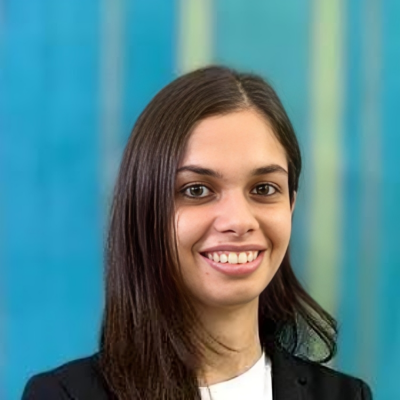
Dr. Ami Kumar
Talk Timings: TBA
Session Chair: TBA
Ami Kumar is a postdoctoral scientist at the department of Neurology, Columbia University, New York, USA. Ami Kumar completed her Ph.D. from Kiel University, Germany and M.Sc. from Dayalbagh Educational Institute, Agra in the field of Neurosciences.
Her current research involves developing new therapeutic pipelines for neuromodulation in movement disorders such as ataxia and tremor, using non invasive brain stimulation techniques.
TBA.
YOUNG RESEARCHER

Dr. Rachna Mathur
Talk Timings: TBA
Session Chair: TBA
TBA.
TBA.
YOUNG RESEARCHER
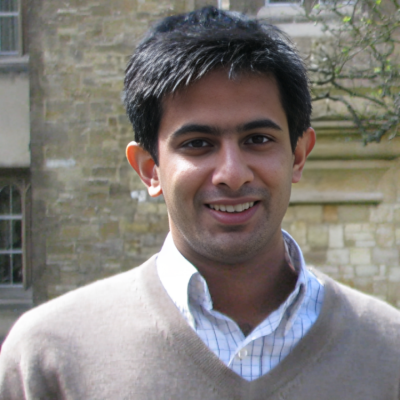
Dr. Shiroman Prakash
Talk Timings: TBA
Session Chair: TBA
Shiroman Prakash completed his M.Sc. in Physics from Indian Institute of Technology, Kanpur, and his Ph.D. in Physics from Tata Institute of Fundamental Research, in theoretical physics.
His research interests include string theory, quantum field theory and quantum information/computation.
TBA.
YOUNG RESEARCHER
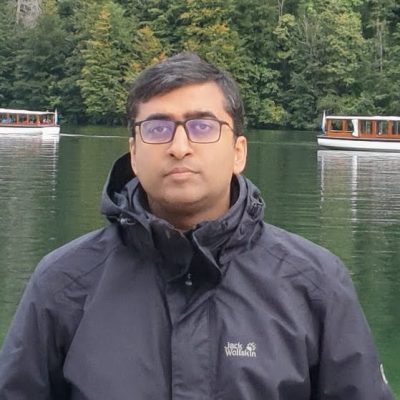
Dr. Mayank Singhal
Talk Timings: TBA
Session Chair: TBA
Mayank is currently employed at Tata Consultancy Services, where he has gained extensive experience in software development and management across multiple geographies. He completed his Bachelor's in Electrical Engineering from the Faculty of Engineering, Dayalbagh Educational Institute, Agra in 2001. Mayank holds a Master’s degree in Industrial and Applied Mathematics (Discrete Mathematics and Applications) from TU Eindhoven (2010), where his thesis under Prof. Dr. Andries Brouwer was the first work on Brouwer’s conjecture and has since inspired several research papers. In 2021, he earned his PhD from the University of Kiel, Germany, under the supervision of Prof. Dr. Anand Srivastav, focusing on the “Derandomization of concentration inequalities with dependencies and their combinatorial applications.”
Graph Energy and Consciousness
YOUNG RESEARCHER

Dr. Anurag Murty Nardela
Talk Timings: TBA
Session Chair: TBA
TBA.
TBA.
KEYNOTE TALK
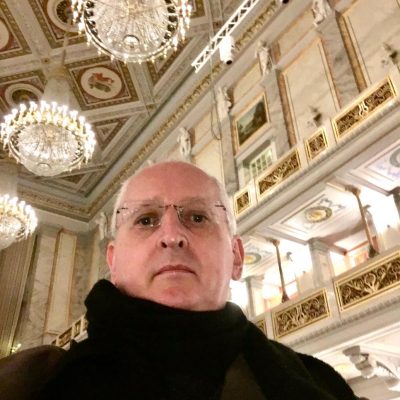
Herbert Lang
Talk Timings: TBA
Session Chair: TBA
Herbert Lang, born in Adelsheim, Germany, is a musician and dedicated promoter of Indian classical music for over 30 years. He holds a B.A. in Indian Music from the University of Madras (Chennai) and was a recipient of prestigious scholarships from the DAAD (German Academic Exchange Service) and ICCR (Indian Council for Cultural Relations).
In recognition of his exceptional contribution to the promotion of Indian music and cultural understanding, Lang received the Gisela Bonn Award in 2006. He served as Guest Professor at the University of Mysore, where, supported by an ICCR grant for scientific research, he worked on the notation of Indian rhythmic structures.
Lang has contributed significantly to intercultural music exchange through performances, collaborations, and academic work. In 2016, he accompanied Dr. L. Subramaniam in a series of concerts commemorating the 100th birth anniversary of Yehudi Menuhin, performing at renowned venues such as the Konzerthaus Berlin, the Yehudi Menuhin Festival in Gstaad, and the Palais des Beaux-Arts in Brussels.
Since 2018, he has toured annually across several European countries with the young Carnatic flautist J.A. Jayant and his ensemble, further fostering appreciation for South Indian classical music. His work reflects a deep commitment to bridging Eastern and Western musical traditions through both performance and pedagogy.Herbert Lang continues to be an influential figure in the global Indian music community, combining scholarly depth with passionate advocacy for cross-cultural understanding through music.
TBA
KEYNOTE TALK
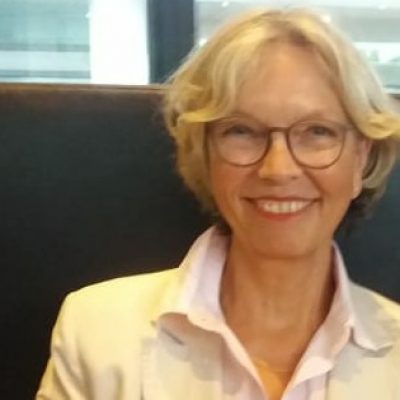
Prof. Anna M. Horatschek
Talk Timings: TBA
Session Chair: TBA
Anna Margaretha (Annegreth) Horatschek is Professor (tenured) and Head of the English Department at the Christian-Albrechts-University Kiel, Germany, where she holds the chair for English Literature from Shakespeare to the Present (since 2000). She is member of the Akademie der Wissenschaften Hamburg/German Academy of the Sciences and Humanities in Hamburg since 2011, and has been elected Vice Presiden of the Academy in 2016. She obtained her academic degrees from the University of California, Berkeley, USA (B.A. 1978), from the German Universities at Freiburg (PhD. 1987) and Mannheim (Habilitation 1995), and taught for one year as an exchange professor in Washington D.C., USA (1998). She is married and has a son.
Prof. Dr. A. Horatschek's research interests focus on identity and alterity constructs with relation to gender, ethnicity and religion in English and American Literature, on ethics, epistemology, representation, knowledge formation, and on mediality. In terms of periods she has worked extensively on Shakespeare-adaptations of the 20th and 21st century and on the British novel from the 18th century to the present. Her fields of research include postcolonial and gender studies, knowledge formation, consciousness studies and anoetics. Methodologically she is informed by literary theory (discourse analysis, deconstruction) and psychoanalysis (Freud, Lacan, Kristeva).
ABSTRACT
Language, Experience, and Spiritual Reality. A Reading of Maharaj Sahab ́s Discourses on Radhasoami Faith.
“[...] religious matters are more or less shrouded in sentimentality, mysticism, and
dogmatic faith“. Maharaj Sahab, the Third Leader of Radhasoami Faith, opens his
Discourses on Radhasoami Faith with this observation. In order to „endow religion with
practical and scientiIic interest“ instead, he dictates the Discourses in 1906, which -
together with a book of poetry he wrote - according to Saran Das Mehta “contain the
teachings of the Radhasoami Faith”.
The general problem of ́translating ́ individual experience into language is ampliIied
manifold when it comes to mystical experiences. Maharaj Sahab, in addition to this general
problem of a verbal representation of mystical experience, aims to explain Radhasoami
Faith as a religion „based upon, and supported by, reason and logic“ in order to meet the
expectations and needs especially of „people who have received English education“
(Mehta). To this end, he dictates his book in English, and thus translates the Religion of
the Saints into a language that implies a cultural, philosophical and religious cosmology
very different from those traditions Radhasoami Faith is immersed in. And what ́s more:
With the scientiIic discourse, he adopts a discourse that for decades of Western criticism
has been considered as categorically incompatible with matters of faith and spiritual
experiences.
Maharaj Sahab explicitly acknowledges these problems in various passages of the book.
My lecture will examine, in which way Maharaj Sahab addresses and deals with these
problems, and how he implicitly devises a differentiated model of the relation between
language, experience, and spiritual reality.
